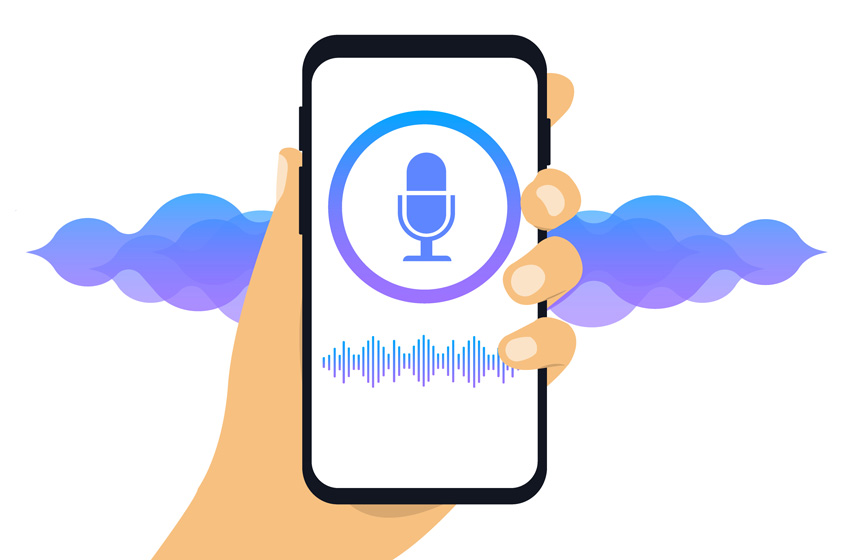
One of the biggest challenges digital marketing faces are the technological developments that continuously alter the boundaries of business. One of these new online innovations is voice search technology, which has had a significant impact on internet search.
In this article, we investigate how voice search has disrupted search engine marketing and consider how businesses can plan around these changes. Firstly though, it is wise to have a quick look into what voice search is.
“Voice search is a speech recognition technology that allows users to search by saying terms aloud rather than typing them into a search field. The proliferation of smartphones and other small, Web-enabled mobile devices has spurred interest in voice search.” - Margaret Rouse, WhatIs.com.
It allows the user to make search engine queries, request specific information (for example, the weather/temperature), launch certain programmes, and even make phone calls.
Voice search started with Siri from Apple, followed by Cortana from Microsoft, Amazon Echo, a voice speaker powered by a personal assistant, Alexa and Google Home (Google’s Assistant). These are just a few examples of voice search devices/assistants now used daily all over the world.
The growing popularity of voice search has led to a change in search engine optimisation (SEO). For most businesses, SEO professionals must follow the best practices to ensure search engine visibility.
SEMrush research suggests that the key to voice performance is high search engine results pages (SERP), site speed, content readability and high-quality backlinks.

When it comes to SEO, a combination of different studies have shown that:
The good news is that websites that follow the best SEO practices are generally primed and ready for voice search. However, this good news doesn’t mean you should neglect voice search, assuming it is being addressed as a bi-product. SEO specialists should get comfortable with Dialogue Flow, a Google-owned development tool that lets you build actions and skills for voice assistants.

Voice search follows everyday colloquial language so that the user can give commands as if they were speaking to a human. Therefore, the more natural language your website uses, the more likely the voice search/AI assistant will choose it to answer the users' query.
Spoken language tends to be more lengthy and less concise than the written word, so queries will be longer than the common three or four keyword searches we are used to. According to a Backlinko study, voice searches currently average 29 words in length. It is, therefore, advisable to adjust by using more long-tail keywords. The longer the keyword phrases are, the higher the probability of a voice-search result.
Other voice search terms you could focus on to improve your performance could include question-related words, terms often omitted from website content. Marketers need to ensure content delivers accurate and relevant answers to questions and contain words such as who, what, where, how etc. Furthermore, it should distinguish between simple questions and those that require complex answers. Voice searches that can be answered by a brief response will often not generate website traffic because Google will typically provide the required information using featured search snippets.
The key nouns and adjectives used in voice search include 'recipes', 'new', 'easy', 'types' and 'home'. You can easily work these terms into SEO strategies, where Marketers can optimise content according to the nature of questions asked by the user.
The “near me” queries are an excellent opportunity for local businesses to shine, as voice technology has brought an emphasis on the use of local search. Users are three times more likely to search locally when using voice search. Optimising your location information will improve your voice search performance.

As mentioned before, most voice search results will rank in the top three positions in search engine results pages (SERPs). Therefore, having a good overall SEO strategy will also help you improve your businesses voice search performance. To optimise content for voice search, include identifiable extracts in your content to make it easier for Google to read by using H-tags and bullet points.
With all that said, Marketers must first investigate the relationship between voice search and their business goals. As with any marketing investment, it is paramount to consider the ROI of pursuing a new avenue of optimisation.
The impact of voice search technology on SEO is undisputable. Given the huge increase in the adoption and use of voice, the significant impact on businesses is already starting to present itself. Brands that can anticipate and prepare for changes in the digital landscape are more likely to reap the benefits in the long term.
The digital marketing team at Freebook Global Technologies optimise websites regularly for a variety of businesses from an array of sectors. We can equip your organisation with the support necessary to rank highly across all types of search.